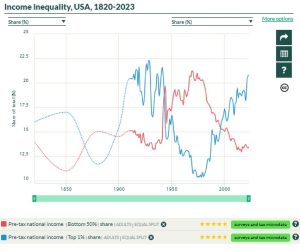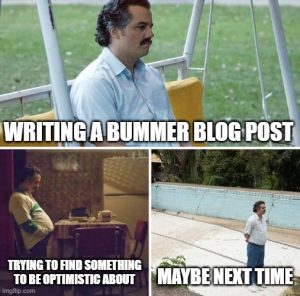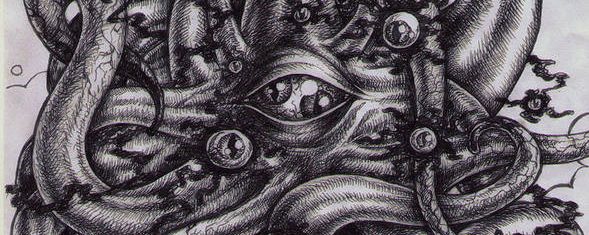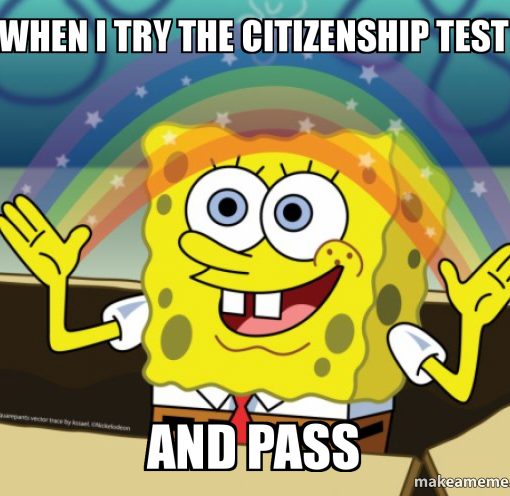Horizon or Precipice?
In 2021 a Pew research study surveyed over 900 experts across public and private sectors to gather predictions for what the internet and the impact of technology on the world might look like in 2025. About a quarter of the way into this year, it appears that the most negative predictions proved most accurate. “Inequality and injustice are magnified” (Anderson et al., 2021). By 2023 the recovery from the pandemic, economic gains across groups failed to move the needle on equalizing wealth distribution.

“As risk grows, security must also; privacy falls and authoritarianism rises” (Anderson et al., 2021). An escalating takeover of the federal government for the purpose of consolidating control seems to also be the goal of accessing personal private data of all Americans for unspecified reasons (Wamsley, 2025).
Among the other reasons that respondents gave for their concerns for the state of the world in 2025, one is particularly relevant to the ideas I am developing in this class. “Misinformation will be rampant” (Anderson et al., 2021). While the 2024 presidential election results were confirmed uncontested, the reports of disinformation and misinformation are widespread and from a variety of reliable sources (Cassidy & Klepper, 2024; Norden et al., 2025; The ADL Debunk, n.d.; Wadley, 2024; West, 2024)
I have been including information and media literacy as a kind of appendage to the curriculum I’d like to develop, but I think it’s showing itself to be much more of a foundational piece. And there is certainly a wealth of resources for teaching media literacy already developed and successfully applied in libraries and universities across the country. The trick will be to market it to people who may be sensitive to criticism and have an already heightened sense of mistrust. I feel like Joseph Heller’s famous Catch-22 quote, “just because you’re paranoid, doesn’t mean they’re not after you” (1961) could be useful if we can just figure out how to broach the idea that the “they” some people imagine aren’t the ones they should be afraid of. If we can do that, we might be able to pull ourselves back from the cliff’s edge.
References
Anderson, J., Rainie, L., & Vogels, E. A. (2021, February 18). Experts Say the ‘New Normal’ in 2025 Will Be Far More Tech-Driven, Presenting More Big Challenges. Pew Research Center. https://www.pewresearch.org/internet/2021/02/18/experts-say-the-new-normal-in-2025-will-be-far-more-tech-driven-presenting-more-big-challenges/
Cassidy, C. A., & Klepper, D. (2024, November 8). The US election was largely trouble-free, but a flood of misinformation raises future concerns. AP News. https://apnews.com/article/election-2024-security-voting-cybersecurity-misinformation-5fcf17a888ac25855a9feda62d9be50a
Heller, J. (1961). Catch-22, a novel. The Modern library.
Norden, L., Panditharatne, M., & Harris, D. (2025, February 21). Multiple Threats Converge to Heighten Disinformation Risks to 2024 Elections | Brennan Center for Justice. BrennanCenter.Org. https://www.brennancenter.org/our-work/analysis-opinion/multiple-threats-converge-heighten-disinformation-risks-2024-elections
The ADL Debunk: False Narratives Around the 2024 Presidential Election | ADL. (n.d.). ADL.Org. Retrieved March 21, 2025, from https://www.adl.org/resources/article/adl-debunk-false-narratives-around-2024-presidential-election
USA. (n.d.). WID – World Inequality Database. Retrieved March 21, 2025, from https://wid.world/country/usa/
Wadley, J. (2024, October 23). Social media disinformation looms over presidential election. University of Michigan News. https://news.umich.edu/social-media-disinformation-looms-over-presidential-election/
Wamsley, L. (2025, March 11). DOGE wants access to very personal information of Americans: NPR. https://www.npr.org/2025/03/11/nx-s1-5305054/doge-elon-musk-security-data-information-privacy
West. (2024, November 7). How disinformation defined the 2024 election narrative. Brookings. https://www.brookings.edu/articles/how-disinformation-defined-the-2024-election-narrative/




3 thoughts on “Reflection on New Horizons”
@epistolaryacumen You cover the state of current events well. Misinformation is indeed rampant. I see it every day if I even take a glance at social media, which I’m trying not to do. What a time. The concept of media literacy is so important and I agree it should be in curriculum. It should be taught in public library classes for patrons, etc..
Really appreciate this post and the meme makes me feel seen lol. You’ve hit the nail on the head with the question of how to help people be interested in developing media literacy to people with a heightened sense of mistrust. It begs the question of what would help people trust who are skeptical of institutions (of any kind). This is something I am chewing on of late- what makes people trust when the very nature of the “institution” seems to be the criteria for skepticism.
Thank you so much for commenting! Right after I posted this, I watched a video that charted the rise of conspiratorial paranoia over the last three decades. It validated a lot of what I have observed, but it also challenged me to recognize my own tendency to get drawn down into a bit of a rabbit hole! I think this realization could be really helpful as I may be more able to empathize with people and help them understand how their fears and aspirations can be corrupted by others.